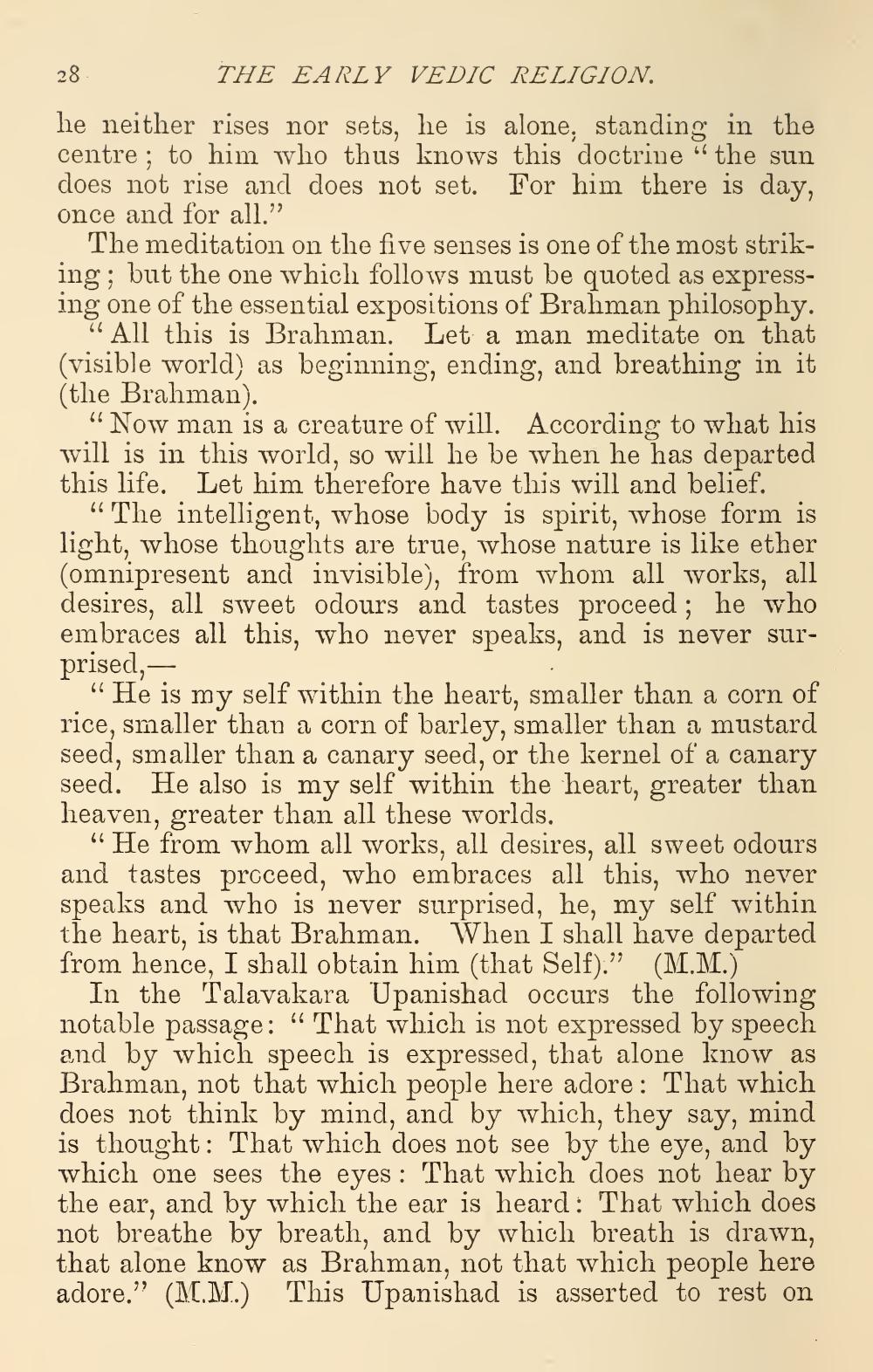________________
28.
THE EARLY VEDIC RELIGION. he neither rises nor sets, he is alone, standing in the centre; to him who thus knows this doctrine “the sun does not rise and does not set. For him there is day, once and for all."
The meditation on the five senses is one of the most striking; but the one which follows must be quoted as expressing one of the essential expositions of Brahman philosophy.
All this is Brahman. Let a man meditate on that (visible world) as beginning, ending, and breathing in it (the Brahman).
“Now man is a creature of will. According to what his will is in this world, so will he be when he has departed this life. Let him therefore have this will and belief.
“The intelligent, whose body is spirit, whose form is light, whose thoughts are true, whose nature is like ether (omnipresent and invisible), from whom all works, all desires, all sweet odours and tastes proceed; he who embraces all this, who never speaks, and is never surprised, -
“He is my self within the heart, smaller than a corn of rice, smaller than a corn of barley, smaller than a mustard seed, smaller than a canary seed, or the kernel of a canary seed. He also is my self within the heart, greater than heaven, greater than all these worlds.
"He from whom all works, all desires, all sweet odours and tastes proceed, who embraces all this, who never speaks and who is never surprised, he, my self within the heart, is that Brahman. When I shall have departed from hence, I shall obtain him (that Self).” (M.M.)
In the Talavakara Upanishad occurs the following notable passage: “That which is not expressed by speech and by which speech is expressed, that alone know as Brahman, not that which people here adore: That which does not think by mind, and by which, they say, mind is thought: That which does not see by the eye, and by which one sees the eyes : That which does not hear by the ear, and by which the ear is heard: That which does not breathe by breath, and by which breath is drawn, that alone know as Brahman, not that which people here adore.” (M.M.) This Upanishad is asserted to rest on




